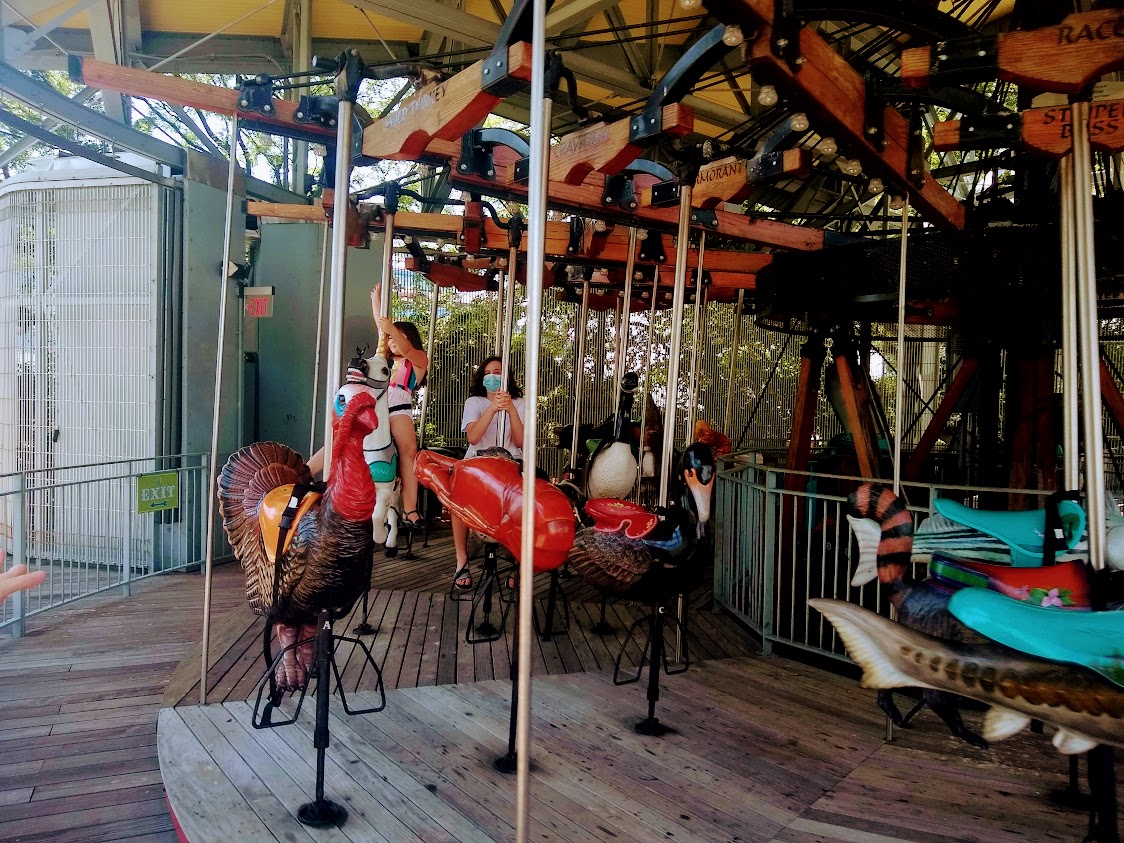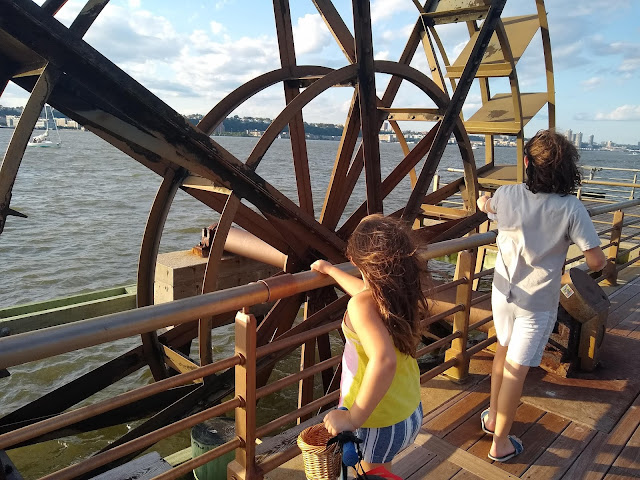The Day After Vegas
We don’t have a word for the kind of wondering we do the day
after Vegas.
Wondering, with its root in wonder, its shades of casual
speculation on the hand, or on the other, awe, is the wrong word. And yet I
cannot think of the right one to describe what I experienced waking up today,
mind pounding and throbbing as I tried to understand: What goes through their
heads?
Not the heads of killers. Neurological factors, early abuse,
frontal-lobe injuries—the perfect storm aggregate of risk factors for
committing a bloodbath is far too rare and isolated to give us actionable data.
Although the headlines in the papers would have us think
otherwise, we do not need to know the motive behind the killing. We do not need
to understand what led to this particular bloodbath. We do not need to get
inside the “mind” of another white gunman. Gun-man as Rebecca Solnit would have us remember. Gun. Man.
Articles about the mind of a lone killer will get hits,
clicks, posts, reposts, likes, retweets. They will generate ad revenue. They
will help sustain investigative pieces attached to fewer dollar signs. In the
long run, we hope, they can contribute toward a better understanding of
sociopathology.
But we have investigated other gunmen. We have traced the
paths that led up to their bloodbaths. We have studied their early lives; read
their final emails; analyzed reports of their last conversations.
None of that will help us today. None of that will not serve
us. None of that will save us.
As far as what we do
on the day after Vegas, none of that matters.
Would-be killers exist worldwide. Only here in the U.S. are
they given free access to endless weapons of mass destruction. Only here is it
possible to say, when a concert on the Vegas strip turns into a phantasmagoric
bloodbath: another day, another mass shooting.
But we’ve said all that too. Numbers—Vox laid them out beautifully—do not convince the ones who need
convincing. The death of 20 rich, white, suburban first graders did not convince
the ones who need convincing.
A bullet’s lack of discrimination, its ability to shatter the bodies of the rich and the poor equally, members from powerful groups and from marginalized equally, distinguishes it from most other horrors that fall disproportionately on the poor and already disempowered. That lack of discrimination, perhaps we might call it terror-equality, of mass shootings, does nothing to convince the ones that need convincing.
A bullet’s lack of discrimination, its ability to shatter the bodies of the rich and the poor equally, members from powerful groups and from marginalized equally, distinguishes it from most other horrors that fall disproportionately on the poor and already disempowered. That lack of discrimination, perhaps we might call it terror-equality, of mass shootings, does nothing to convince the ones that need convincing.
Who are they? Who are the “they” I woke up wondering about?
The owners and traders and paraders of guns, the guardians
of laws to protect semi-automatic weapons, they are hardly mysterious. They are
collecting weapons of war. How much more concretely must they acknowledge their
paralyzing fears? They have made their inner states manifest. Their vulnerability,
their sense of helplessness, their lack of inner strength are on full display.
Should we ask about the minds of the 49 members of the U.S.
Senate and 258 members of the House of Representatives who accept NRA donations
and bend to its will? Maybe, yes. But it is not so hard to imagine that in a
country of millions a few hundred people exist so bent on power that they see these
kinds of bloodbaths as a reasonable tradeoff to keep it. They are part of the
same group that would seek to take away people’s healthcare, that favors
environmental deregulation. Death is no obstacle to them. Refusing to pass
background checks when 90% of Americans were in favor is just one more example.
We need spend no more time wondering about most evangelicals, 80% of whom voted for Trump. “Are they really pro-life if they
are not protecting the right of a child not to die from cancer? Are they really
pro-life if they would rather give tax cuts to big business than help hurricane
victims or give meals to housebound seniors? Are they really pro-life if—”
No. They’re not. They’ve told you this, again and again.
As the ever-wise Maya Angelou said, “When someone shows you
who they are, believe them.” They are not our allies. We must not spend any
more time trying to engage them in our fight.
The “they” that plague me, then, that leave me still
wondering, are the people I grew up with who went to the best schools in the country, who studied with me at Dartmouth, at Fordham, the parents at my
children’s school whose luxurious, non-working days are filled with
volunteering for the already well-resourced PTA, my neighbors, my friends, my
family, my husband, myself, these immensely privileged people, who talk a lot and post a lot on Facebook and sometimes wreck elections for
Democrats and send us spiraling further downward into the Bacchanalian hell of
white male empire, and the perhaps less “far-left” but often more practical and
truly active people who talk a lot and post a lot on Facebook and try to win
elections for Democrats, but the whole lot of us, that is, all of us who through
merit, and hard work (in most cases) and, in every
single case good luck, just pure good luck of circumstance, have been given enough
stability, enough access, to have a voice.
What will it take for them, for us, to untangle the link between those
who trade in the symbolic economies of Wall Street, stockpiling nihilistic billions, and those who openly parade what
they must alone in the middle of the night feel is at bottom the completely emptiness and
meaningless of life by stockpiling machines whose sole function is—with the
greatest possible swiftness and efficiency—to end it?


The They/We should plague us, yes, so it's good to name that. But then, don't most of "us" understand that link, between money and guns? Dollars and war? Power grabbing and death? It's the age old story, one that plays out again and again, and it seems to be speeding up beneath our eyes, right now in this broken nation and world. I mean, we either believe it and look away, or believe it and stand up to say NO MORE. Many will deny the link, and I know that because I am related to some of them. But now in this current cultural moment we realize that we, the "we" with resources, even dare I say, the "white" we, have lived in denial way too long. We've heard the wake up calls in the form of a succession of innocent black men's murders, and we have aligned with the cause of justice, not unlike those from all over the nation rallied to march from Selma to Montgomery. We shall overcome. Do we believe the words of this song? Do we sing it under our breath while we're walking through the streets, picking up our children from school in the most segregated school system in the US? Are we overcoming while we're marching in the streets for women and immigrants? Do we overcome when we ask the homeless guy his name, give him the leftover kid snacks from the bottom of our bag, and a dollar, and tell him we're praying for him? What about when we're actually praying for him? How much more can we do for him when policy is a losing battle and the homeless, the hungry, the lost, seem to simply multiply before our eyes? How can we touch their pain when we're barely making ends meet (despite our privilege)? Do we overcome when we make a point to small talk to, make friends with, the Other? Who is the Other, anymore? We wanted to believe that there were no Others, that we were all the same (but alas, we were so naive). Are we eternally too privileged, because despite everything we believe to the contrary, privilege simply has its grip on us? Remember what Jesus said to the rich man who asked him how he could find eternal life (Matt 19:21-22). How are we living that out, right this minute in this present darkness?
ReplyDeleteWow, this is crazy/brilliant/beautiful. And you are the first to really answer. I suppose there were the cursory answers on Facebook, but few willing to engage? I feel like that is almost this incredible sermon that you're giving. I feel that people often talk about the link between guns and $$ but that they're talking in a limited way about the NRA making money and with the market saturation, the need for new products to push (hence silencers and bump stocks to make semi-automatic into automatic weapons). What I was talking about—and is this obvious/established and widely accepted too?—was the connection between those who have no interest in guns, who largely hate guns, who live in blue states, who worship money, and who are concerned here and there with gun violence but not enough to release themselves from the death grip of excess capital. The ones with the resources must not want a change because the ones with the resources are all here, all in the blue states, all along the coasts, and they are all but silent. Asking the homeless man his name, picking up children in the most segregated system, marching, hoping to overcome, and yes I question that too, if marching for women and immigrants we've abandoned the long-invisible others who have been here all along. "Privilege simply has its grip on us" = brilliant line. I think marching, writing, praying, asking the name, talking, reading, pushing, fighting—I think if we keep doing this, and I know you are, we are attempting to live out the truth of a creed that has in reality so long been a lie, that creed of equality. You are always a light, Kirstin, in the present and all darkness.
ReplyDelete